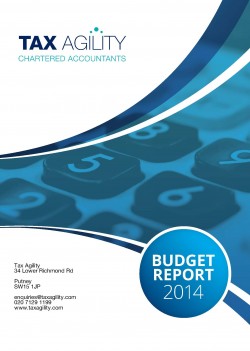Maximizing Your State Pension: A Crucial Financial Opportunity for UK Residents Aged 40-73
Retirement planning is a complex process that involves navigating through a plethora of options and strategies to increase your savings. While some opportunities may come with hidden drawbacks, there are certain prospects that stand out as particularly valuable.
 Currently, individuals aged 40 to 73 in the United Kingdom have a unique chance to significantly boost their State Pension by purchasing missing National Insurance (NI) years from the period between 2006 and 2016.
Currently, individuals aged 40 to 73 in the United Kingdom have a unique chance to significantly boost their State Pension by purchasing missing National Insurance (NI) years from the period between 2006 and 2016.
Understanding the Importance of National Insurance Years
The UK’s ‘new’ State Pension currently stands at £203.85 per week. However, the exact amount an individual receives depends on the number of qualifying full National Insurance (NI) years in their record. These NI years are typically accumulated through employment and NI contributions, but claiming benefits or providing care for others can also count towards qualifying years.
To receive the maximum State Pension, an individual generally needs around 35 full NI years. However, the precise number of years required may vary based on factors such as age and NI record up to this point. For example, someone who has worked consistently since the age of 18 and has never taken time off for caregiving or unemployment may reach the 35-year threshold earlier than someone who has had gaps in their employment history.
The Impact of Additional NI Contributions Beyond 35 Qualifying Years
If you have already achieved 35 full qualifying years of NI contributions, you may be wondering whether continuing to pay NI will further increase your State Pension. The answer to this question depends on your specific circumstances and the type of State Pension you are eligible for.
For individuals who reached State Pension age on or after 6 April 2016, the ‘new’ State Pension rules apply. Under this system, once you have reached 35 qualifying years, additional years of NI contributions will not increase your State Pension income further. This is because the ‘new’ State Pension is based on a flat rate, which is currently set at £203.85 per week (for the tax year 2023/24). Once you have met the requirement of 35 qualifying years, you are entitled to receive the full flat rate, and any additional years of contributions will not boost your pension income beyond this level.
However, if you reached State Pension age before 6 April 2016, you will fall under the ‘basic’ State Pension rules. In this case, you may have the opportunity to increase your State Pension income even if you have already achieved 35 qualifying years. Under the ‘basic’ State Pension system, you can accrue additional State Pension through the State Second Pension (S2P) or the State Earnings-Related Pension Scheme (SERPS). These additional pension schemes are based on your earnings and the amount of NI contributions you have made throughout your working life. If you continue to work and pay NI contributions beyond the 35-year threshold, you may be able to increase your State Pension income through these additional pension schemes, although the specific amount of increase will depend on factors such as your earnings level and the number of additional years you contribute.
Checking Your NI Contributions and State Pension Status
To make informed decisions about purchasing missing NI years and planning for your retirement, it’s essential to understand your current NI contributions and State Pension status. Fortunately, the UK Government provides online services that allow you to easily check this information. you can find the service here: “https://www.gov.uk/check-national-insurance-record”
To check your NI contribution record, you can access your National Insurance record online through the gov.uk website. You will need to create a Government Gateway account if you don’t already have one. Once logged in, you can view your NI contributions history, including any gaps in your record.
To check your State Pension status, you can use the online “Check your State Pension” service, also available on the gov.uk website. This service will provide you with a State Pension forecast, which estimates the amount of State Pension you could receive based on your current NI record and the age at which you can claim it.
By regularly checking your NI contributions and State Pension status, you can identify any gaps in your record and make informed decisions about whether purchasing missing NI years is a beneficial step for your retirement planning.
The Rare Opportunity to Buy Back Missing Years
Under normal circumstances, individuals are permitted to buy back up to six years of missing NI contributions. However, when the ‘new’ State Pension was introduced, transitional arrangements were put in place to allow people to fill gaps dating back to 2006. This presents a rare opportunity for those who may have missed contributing to their NI during this period.
For instance, if an individual took a career break to raise children or care for a family member between 2006 and 2016, they now have the chance to purchase those missing years and boost their State Pension. Similarly, those who were self-employed or worked abroad during this period may also benefit from taking advantage of this opportunity.
The Cost of Purchasing Missing NI Years
The cost of purchasing missing NI years depends on the specific year(s) you wish to buy back and the type of NI contributions required. For the tax year 2023/24, the rates for voluntary Class 3 NI contributions (the most common type for buying back years) are as follows:
- £17.45 per week for the tax year 2023/24
- £824.20 for a full year of voluntary Class 3 contributions
It is important to note that these rates are subject to change each tax year, and the cost of buying back years from earlier tax years may be different. Additionally, some individuals may be eligible to pay Class 2 NI contributions, which have a lower weekly rate of £3.45 for the tax year 2023/24.
The Deadline Extension: Act Before 5 April 2025
Initially, the deadline for purchasing missing NI years was set for 5 April 2023. However, recognizing the high demand for this opportunity, the Government has extended the deadline twice. The first extension pushed the deadline to 31 July 2023, and a subsequent extension has now set the final deadline at 5 April 2025.
This extension provides individuals with ample time to assess their NI record and determine whether purchasing missing years is a worthwhile investment for their retirement planning. It is important to note that the cost of making voluntary NI contributions will remain frozen until the 5 April 2025 deadline, making it an even more attractive opportunity.
The Benefits of Purchasing Missing NI Years
The primary benefit of purchasing missing NI years is the potential to significantly increase your State Pension. Each additional qualifying year can add up to £5.29 per week to your State Pension, which equates to around £275 per year. Over the course of a 20-year retirement, this could amount to an extra £5,500 in State Pension income.
Moreover, increasing your State Pension can provide a more stable and reliable source of income in retirement, which can help to alleviate financial stress and improve overall quality of life. It can also reduce the need to rely on other sources of income, such as personal savings or investments, which may be subject to market fluctuations or other risks.
Who Should Consider This Opportunity?
While the focus is primarily on those aged 40 to 73, even individuals under 40 can benefit from assessing whether topping up their NI record is worthwhile. This is particularly relevant for those who have had gaps in their employment history or who have worked abroad for extended periods.
It is also important to note that purchasing missing NI years may not be the best option for everyone. Those who are already on track to receive the full State Pension under the ‘new’ State Pension rules or who have limited financial resources may not see a significant benefit from this opportunity. However, for many individuals, particularly those with gaps in their NI record or those who fall under the ‘basic’ State Pension rules, purchasing missing years can be a smart financial move.
Make the most of your pension contributions opportunity
- Pensions provide a stable and reliable income source in retirement.
- Maximising your State Pension can significantly boost your retirement income.
- Purchasing missing NI years can help you achieve a higher State Pension.
- The deadline to buy back missing NI years has been extended to 5 April 2025.
- Each additional qualifying NI year can add £275 per year to your State Pension.
- Seek advice from a qualified accountant can help optimize your pension planning.
Final Thoughts
The option to purchase missing National Insurance years presents a valuable financial opportunity for UK residents aged 40 to 73. By taking advantage of this chance to fill gaps in their NI record dating back to 2006, individuals can potentially see a significant increase in their State Pension income.
With the deadline for this opportunity now extended to 5 April 2025, and the cost of voluntary NI contributions frozen until this date, there has never been a better time to explore this option as part of your retirement planning strategy. By securing a higher State Pension, you can look forward to a more comfortable and financially stable retirement.
To fully understand the implications of purchasing missing NI years and determine whether it is the right choice for your unique circumstances, it is highly recommended to discuss this matter with a qualified and experienced accountant.
September's Mini-Budget
The budget delivered a package of more than 30 measures intended to tackle high energy bills, drive down inflation, and cut taxes to drive growth. However, the abolishment of the 45% tax bracket took many by surprise.
Here's a summary of the main elements of the budget.
Income Tax changes
An 'additional' tax rate of 50% was introduced in April 2010, reduced to 45% three years later but from 6 April 2023 will be no more. The 40% band will now be the highest tax rate such that the 13.7% previously 'additional' rate taxpayers will not only pay less tax but now everyone will benefit from the £500 personal savings allowance. The level of personal allowances remains (for the moment), meaning taxpayers earning more than £125,140 will still have no personal allowances.
The increase in dividend rates will also be reversed from 6 April 2023 such that the tax rates of income tax in England and Northern Ireland will be:
| Earnings band (after allowances) | On earnings and profits | On dividends |
| Basic rate (0 to £37,700) | 19% | 7.5% |
| Higher rate (above £37,701) | 40% | 32.5% |
| Additional rate | Abolished | Abolished |
This reduction/cancellation in tax rates is pleasing for the individual taxpayer but tax relief given at source (currently at 20%) on pension contributions and Gift Aid donations will be affected. The government has confirmed that there will be a four-year transition period for Gift Aid relief to maintain the income tax basic rate relief at 20% until April 2027 and a one-year transitional period for 'Relief at Source' pension schemes.
NIC changes
The rates of class 1 NIC are reversed back to the levels in place on 5 April 2022 but the rates imposed from 6 July 2022 to 6 November 2022 remain. Therefore for all employees (except directors paying NIC cumulatively) the tax year will effectively be split into two - the first period for the first seven months of the tax year (6 April to 5 November 2022) and a second for the remaining five months (6 November 2022 to 5 April 2023). The calculation means that over the year the main Primary rate payable by the employee will be 12.73% (i.e. seven months at 13.25% and five months at 12%) and the main Secondary rate payable by the employer will be 14.53% (15.05% and 13.8%). Corresponding rates of Class 4 NIC for the full tax year 2022/23 will be 9.73% and 2.73% (a reduction from 10.25% and 3.25% to 9% and 2% respectively).
The figures are as follows:
- Employees' class 1 NIC
- 12% on earnings in the band: £1,048 to £4,189 per month (£12,570 to £50,270 per year)
- 2% on earnings above £4,189 per month (£50,270 per year)
- Employers' class 1 NIC
- 13.8% on earning above £758 per month (£9,100 per year)
- The employment allowance remains at £5,000.
Care will be needed if payroll is run around the changeover date. If the software has not been updated in time payments may have to be made using pre- 6 November percentages and any underpayment sorted out in the following payroll run.
Other key tax announcements
The statement included the reversal of a string of planned tax rises including the intended increase to 25% in the corporation tax rate originally set for 6 April 2023 -- this remains at 19%. Planned beer, wine, cider, and spirits duty rate increases have also been canceled and overseas shoppers can now shop sales- tax free in the UK.
The Annual Investment Allowance is a valuable tax break providing a 100% tax deduction for up to £1m of plant and machinery purchased in a year. This cap was due to be reduced to £200,000 on 1 April 2023 but will now be kept at £1m indefinitely.
Queries remain over the application of the 'super relief'. Under this relief qualifying expenditure on new plants and machinery incurred from 1 April 2021 to 31 March 2023 receives 130% tax relief effectively allowing 24.70% tax relief on expenditure (130% x 19%). Now that the corporation tax rate is being retained at 19% from 1 April 2023, we await further announcements as to whether this relief will remain.
The Enterprise Investment Scheme, providing tax incentives for individuals to subscribe for shares in unquoted trading companies, was due to end in 2025 but has now been extended for an undefined period. The similar Seed Enterprise Investment Scheme providing tax relief for investment in small trading companies also remains in place with increases in the annual investment caps of £100,000 per investor, £150,000 per company.
IR35 reversal
IR35 never really went away - the rules just changed. Now from 6 April 2023, another change means we are back to the original 2017 rules. The off-payroll working variants for the public sector (from 6 April 2017) and for large private sector organisations (from 6 April 2021) are to be scrapped. It will now be up to the directors of intermediary companies to decide whether there would be an employment relationship between the worker and the engager, if all intermediaries in the chain are ignored.
Stamp Duty Land Tax
As from 23 September 2022, the threshold from which SDLT must be paid on the purchase of residential property had doubled from £125,000 to £250,000. This means that the 2% tax rate has been abolished, saving purchasers a potential £2,500.
What the Dividend Allowance Changes Mean for SMEs
Announced during last year’s emergency (summer) Budget, the proposed dividend tax changes, known as the new tax-free Dividend Allowance, are due to come into force on 6 April 2016, replacing the old Dividend Tax Credit.
Under the tax-free Dividend Allowance changes, all UK residents won’t be taxed on the first £5,000 of dividend income they receive each year, with dividend income above the new £5,000 threshold taxed at:
- 7.5% on dividend income that falls within the basic rate band
- 32.5% on dividend income in the higher rate band
- 38.1% on dividend income in the additional rate band
It’s important to keep in mind that these changes will not affect dividends received via tax-exempt pension funds, as well as dividends you have received on shares in an Individual Savings Account (ISA), as is the case now.
Impact on Small Business Owners
Designed to tax small businesses who purposely pay their owners and executives a small salary (in order to secure their access to the State Pension), with the bulk of their income coming in a larger dividend payment, the government has marketed these changes as a boon for the majority of the population: a £5,000 Dividend Allowance, on top of the current £11,000 personal allowance, sounds rather attractive after all.
However, the impact of the proposed dividend tax changes on small and medium-sized business (SME) owners has the potential to create a negative affect on small business bottom line’s across the country.
In an online petition created under the title “Reconsider the new Dividend Tax for small businesses,” petition creator Frauke Golding noted that:
“The Government have stated that business is going to be at the heart of their programme for the next 5 years. Small businesses make up 99.3% of all private sector businesses and we provide just under 50% of all private sector jobs. There is a real danger that this new tax, along with auto enrolment and minimum wages increases, will have a significant effect on those people brave enough to start up a business that could make a meaningful contribution to the economy and jobs market.”
In response to Mr. Golding’s petition, which at time of writing has received 46,627 of the 100,000 signatures it needs to be considered for debate in Parliament, HM Treasury commented in defence of the dividend tax change, noting that “The Government is fully committed to supporting business and entrepreneurship,” before launching into three paragraphs that touched upon the government’s desire to reduce Corporation Tax from 20 to 18 percent by 2020, as well as a rundown of the benefits small business owners are also soon to receive:
“Owners of small companies will also benefit from a range of other measures announced at the Summer Budget, including an increase in the National Insurance Employment Allowance to £3,000 from April 2016 and a permanent increase to the Annual Investment Allowance to £200,000 from January 2016. They will also pay less tax as a result of the increases to the tax-free Personal Allowance to £11,000 and to the Higher Rate Threshold to £43,000 in April 2016.”
Our Advice
In light of the tax-free Dividend Allowance coming into force on April 6, our advice for small business owners is to take some time to look through the numerous examples the government provide in their Dividend Allowance factsheet to get an understanding of whether you will be better or worse off as a result of the change. For more information on governement changes and the effects they have on you or your business, have a read of our pieces on the following:
Budget 2016: Key Takeaways for Contractors
Budget 2016: Key Takeaways for Companies
Budget 2016: Key Takeaways for Individuals
If that's not enough, we have a wealth of information on our blog too.
For personalised advice to this effect, we encourage you to contact your tax adviser.
Experienced Tax Accountants
To speak with a professional accountant to discuss the tax implications of the new tax-free Dividend Allowance, or for anything else, contact us today on 020 8780 2349 or get in touch with us via our contact page to arrange a complimentary, no obligation meeting.
Budget 2016: Key Takeaways for Contractors
Following on from this morning’s summary on the key talking points from Budget 2016 for individuals, below we’ve summarised the key talking points for contractors from Chancellor of the Exchequer George Osborne’s eighth full Budget.
Keep an eye out for our article summarising Budget 2016 for small and medium-sized businesses (SMEs), coming later today.
New Tax Allowances for ‘Sharing Economy’ Workers
One of the biggest takeaways from Budget 2016 from the point of view of contractors was that the Chancellor has, finally, recognised how traditional taxation methods have been having a negative impact on contractors earning small and one-off payments as part of the sharing economy.
Speaking to the House of Commons, Mr. Osborne said:
 “We’re going to help the new world of micro-entrepreneurs who sell services online or rent out their homes through the internet. Our tax system should be helping these people so I’m introducing two new tax-free allowances each worth £1,000 a year, for both trading and property income.”
“We’re going to help the new world of micro-entrepreneurs who sell services online or rent out their homes through the internet. Our tax system should be helping these people so I’m introducing two new tax-free allowances each worth £1,000 a year, for both trading and property income.”
The Chancellor continued by noting that there will be no forms to fill out in order to benefit from this tax break, before claiming that at least 500,000 people will benefit from this change.
Class 2 National Insurance Contributions for the Self-Employed to be Scrapped
The other big announcement, from the point of view of contractors, was that Class 2 National Insurance contributions (NICs) for the self-employed are due to be abolished from April 2018 in favour of the benefits of Class 2 NICs (primarily entitlement to the State Pension) being combined with the benefits of paying Class 4 NICs.
Currently costing contractors and self-employed individuals making a profit of £5,965 or more per year £2.80 per week, from April 2018 you will only be required to pay Class 4 NICs, though it is unclear whether the current weekly cost of Class 2 NICs will transfer directly to the new Class 4 NICs.
Business Rates Abolished for Properties With Value up to £12,000
One of the biggest talking points from Budget 2016 was that of business rates being abolished for all business (commercial) properties with a rateable value up to £12,000, from April 2017. There will also be a ‘tapered’ relief rate on properties between £12,001 and £15,000.
With the current relief rate set at just £6,000, this poses a hugely beneficial increase for small businesses and contractors working from a commercial space. The government estimate that under the new rules 600,000 small businesses will pay no rates at all.
Personal Allowance to Increase to £11,500
Touched upon in this morning’s key talking points for individuals summary, and seen equally as a boon for contractors, from April 2017 the personal allowance will increase to £11,500 (after rising to £11,000 next month).
The personal allowance was just £6,500 when the Conservatives were elected six years ago, displaying an almost 100% increase.
Understanding Budget 2016
To speak with a professional accountant to discuss the impact of Budget 2016 on you as a contractor, or for anything else, contact us today on 020 8780 2349 or get in touch with us via our contact page to arrange a complimentary, no obligation meeting.
More Information
If you're interested in the Budget 2016 changes and the impact they'll have on you, feel free to check out our other pieces on the impacts of George Osborne's changes:
Budget 2016: Key Takeaways for Companies
Budget 2016: Key Takeaways for Individuals
Budget 2016: Key Takeaways for Companies
Following on from this morning's summaries on the key talking points from Budget 2016 for individuals and contractors, below we’ve summarised the key talking points for companies from Chancellor of the Exchequer George Osborne’s eighth full Budget.
Focusing on small and medium-sized businesses (SMEs), this is the final part in our article series on Budget 2016. To speak with us directly about this year’s Budget, or for anything else, our contact details are at the end of this article.
New Stamp Duty Rates for Commercial Properties
Coming into effect at midnight on 17 March/last night, the new stamp duty rates for commercial properties represent a complete overhaul in the way in which stamp duty on freehold commercial property and leasehold premium transactions is calculated.
A boon for small and medium-sized business (SME) owners, under the new rules instead of stamp duty rates applying to the whole value of a commercial property, Mr. Osborne described how the new rates and tax bands will result in a 0% stamp duty rate for commercial property up to the value of £150,000, with a 2% rate applying for the portion of a commercial property’s value between £150,001 and £250,000, and a 5% rate applying for the portion above £250,000.
Business Rates Abolished for Properties With Value up to £12,000
We touched upon this in our key talking points for contractors summary, though it’s more relevant for companies than it is contractors. One of the biggest talking points from Budget 2016 was that of business rates being abolished for all business (commercial) properties with a rateable value up to £12,000, from April 2017. There will also be a ‘tapered’ relief rate on properties between £12,001 and £15,000.
With the current relief rate set at just £6,000, this poses a hugely beneficial increase for small businesses and contractors working from a commercial space. The government estimate that under the new rules 600,000 small businesses will pay no rates at all.
Employers to Pay National Insurance Contributions on Pay-Offs
If you have taken on employees at your SME, from April 2018 you will need to pay National Insurance Contributions (NICs) on any pay-offs (typically employee termination payments) you make above £30,000.
As is currently the case, should you have to make an employee’s position redundant that employee can receive a pay-off from you of up to £30,000 without you or they having to pay NICs on that amount.
Corporation Tax to Reduce to 17% by 2020
Though it’s a little while off yet, at yesterday's Budget the Chancellor announced that Corporation Tax is due to drop from 20% to 17% by 2020.
Should this reduction come to fruition it will mark a particularly low Corporation Tax rate, given that it was 28% when the Conservatives came to power in 2010. At it’s current rate of 20%, the UK has the lowest Corporation Tax rate in the G20.
Understanding Budget 2016
To speak with a professional accountant to discuss the impact of Budget 2016 on your company, or for anything else, contact us today on 020 8780 2349 or get in touch with us via our contact page to arrange a complimentary, no obligation meeting.
If you're an individual or contractor, you needn't go to the trouble. Check out our pieces that are best suited to you:
Budget 2016: Key Takeways for Contractors
Budget 2016: Key Takeaways for Individiuals
Budget 2016: Impact on Individuals
Yesterday, Wednesday 16 March 2016, Chancellor of the Exchequer George Osborne delivered his eighth full Budget to the House of Commons since the Conservatives came into power in 2010; his second since the party’s majority win in May of last year.
Below we’ve summarised the key talking points from Budget 2016 for individuals. You’ll note what the Guardian call a number of “voter-wooing measures” in our summary. With the Brexit vote scheduled for 23 June, the Conservatives were adamant that the forecasts they presented yesterday are predicated on the UK remaining within the European Union.
Keep an eye out for our articles summarising the key talking points from yesterday’s budget for contractors and, separately, small and medium-sized businesses (SMEs), both of which are coming later today.
Personal Allowance to Increase to £11,500
At Budget 2016 Mr. Osborne announced that the Personal Allowance will increase to £11,500 in April 2017, with the higher rate threshold jumping to £45,000.
Before then, however, the current personal allowance of £10,600 is set to rise to £11,000 next month, with the higher rate threshold rising from £42,385 to £43,000.
Capital Gains Tax (CGT) to Reduce from 28-20%
From 6 April 2016 (just three weeks’ time) Capital Gains Tax (CGT) will be reduced from 28-20% for higher rate earners; 18-10% for those paying the basic rate.
Residential property will, however, still be taxed at its current rates, with an eight percent surcharge being payable on top of the new CGT for the residential property itself, and any carried interest that it holds, thus bringing both CGT tax rates back to their former percentage values for residential properties respectively.
ISA Allowance Increases to £20,000, and New Lifetime ISA
From April 2017 the total amount you can save into all ISAs in a given year will increase from £15,240 to £20,000.
The government also announced a new Lifetime ISA which, from April 2017, will allow any adult under the age of forty to save up to £4,000 per year while receiving a 25% bonus on this money from the government. Any money put into your Lifetime ISA can either be saved until you are over sixty and used in your retirement, or withdrawn to purchase a home, if doing so will turn you into a first-time homeowner.
Sugar Tax
In a surprise move the Chancellor has imposed a levy on soft drinks with a total sugar content above 5 grams per 100 millilitres (and an even higher levy for drinks with more than 8 grams per 100 millilitres), from April 2018.
Television chef Jamie Oliver, who has campaigned for a sugar tax for many years (and who personally introduced one in his own restaurants), said yesterday “I never thought they’d do it.” The government noted that the approximately £520m to be raised from the tax will go towards funding school sports programs.
Longer School Days Available to 25% of Secondary Schools
Talking of schools, up to £285 million of funding (some of which coming from the above-mentioned sugar tax) will be set aside to give 25% of secondary schools across the country the option to opt in for longer school days from September 2017, should they so wish.
This comes in tandem with funding aimed at turning every primary and secondary school in the country into an academy by 2022.
Fuel and (Most) Alcohol Duty Frozen
Last in our summary comes a few aforementioned “voter-wooing measures”, including fuel duty being frozen for the sixth year in a row, a measure which the government estimate will save the typical motorist £75 a year.
Rates on spirits, beer, and the majority of ciders will also be frozen for the 2016-17 tax year, and in a measure likely intent on wooing Welsh voters, the crossing toll on the Severn Bridge will be cut in half, down to £3.30.
Understanding Budget 2016
To speak with a professional accountant to discuss the impact of Budget 2016 on you as an individual, or for anything else, contact us today on 020 8780 2349 or get in touch with us via our contact page to arrange a complimentary, no obligation meeting.
If you're a company or contractor, you needn't go to the trouble. Check out our pieces that are best suited to you:
Budget 2016: Key Takeways for Contractors
Budget 2016: Key Takeaways for Companies
How the Emergency Budget Impacts Individuals and SME Owners
 On Wednesday Chancellor of the Exchequer George Osborne delivered an emergency (summer) Budget, just four months after Budget 2015 was delivered on 18 March, ahead of the general election.
On Wednesday Chancellor of the Exchequer George Osborne delivered an emergency (summer) Budget, just four months after Budget 2015 was delivered on 18 March, ahead of the general election.
The Budget focused, for the first time in almost twenty years by a Conservative government, on a surprise rise in the minimum wage. Also looking at an increase in the Employment Allowance, a cut in Corporation Tax, and a host of welfare reforms, the key points for individuals and small business owners from this week’s emergency Budget are outlined below. For a more indepth summary, read our Summer Budget newsletter:
New National Living Wage
“Let me be clear: Britain deserves a pay rise and Britain is getting a pay rise.” Those were the words of George Osborne on Wednesday ahead of the introduction of the new National Living Wage.
Promising a minimum wage (for workers aged over twenty-five) of £7.20 an hour from April 2017, rising to £9.00 an hour by 2020 (with 6 percent a year average increases between these two dates), Mr. Osborne claimed that the new National Living Wage will increase the wages of 2.7 million workers across the United Kingdom.
Employment Allowance Increased to £3,000
From April 2016 the Employment Allowance will be increased to £3,000 from £2,000, allowing small business owners to cut a further £1,000 from their National Insurance bill. Combined with the new National Living Wage, from next year small business owners will be able to employ four members of staff, full time, while not paying any National Insurance.
Personal Allowance Increased to £11,000 in April 2016
We knew it was coming, yet on Wednesday the Chancellor confirmed that the tax-free Personal Allowance will increase to £11,000 for the 2016-17 tax year, with the higher rate tax threshold increasing to £43,000.
Corporation Tax Cut to 18% by 2020
Seen as an olive branch to businesses large and small that will, inevitably, be affected by the higher new National Living Wage, Mr. Osborne’s plan to cut Corporation Tax by 1 percent to 19 percent by 2017, and a further 1 percent to 18 percent by 2020, may help heal some open wounds.
Annual Investment Allowance
From January 2016 the annual investment allowance will be permanently increased to £200,000 (it was previously increased on a short-term basis), meaning business owners can reduce the full cost of a number of items (including machinery costs) up to £200,000 of their pre-tax profits per year.
If you use the TaxAgility app, we’ve already added this change in the ‘Main Capital and Other Allowances’ section.
Welfare Reforms
In the emergency Budget the Chancellor announced a number of reforms to the welfare system that will make it, in the Government’s words, “fairer for taxpayers who pay for it, while continuing to support the most vulnerable.”
These reforms included a four year freeze on working-age benefits (including tax credits and Local Housing Allowance) from 2016-17, and household benefit caps being reduced to £20,000, or £23,000 in London.
New £5,000 Tax-Free Dividend Allowance
The new £5,000 tax-free dividend allowance means only individuals who make over £5,000 dividend income per year from shares will have to pay tax on this income, though tax rates will be increased for those making over this amount.
Experienced Personal and Small Business Accountants
To speak with a professional to discuss how the emergency Budget may affect you personal finances, or those of your business, contact us today on 020 8780 2349 or get in touch with us via our contact page to arrange a complimentary, no-obligation meeting.
The Emergency Budget: What SME’s Could Expect
 Chancellor of the Exchequer George Osborne has announced that he is to deliver an ‘emergency’ Budget (also referred to as a summer Budget) on July 8 2015, just four months after Budget 2015 was delivered on 18 March 2015 ahead of the recent general election.
Chancellor of the Exchequer George Osborne has announced that he is to deliver an ‘emergency’ Budget (also referred to as a summer Budget) on July 8 2015, just four months after Budget 2015 was delivered on 18 March 2015 ahead of the recent general election.
Though it may seem unusual to deliver two budgets in a year, Mr. Osborne’s very first Budget was also an emergency Budget, taking place directly after the Conservative and Liberal Democrat coalition was formed in 2010.
Why Hold an Emergency Budget
Next month’s emergency budget is taking place because the policies announced and elaborated upon in the last budget, on 18 March, were created by a coalition Government; not the Conservatives alone.
With the Conservatives winning an overall majority at the general election on 7 May, it became clear with the announcement of the emergency budget that the Tories now wish to declare their own policies, without any pressure from (or consolations for) the Liberal Democrats.
What to Expect
Though the Chancellor has already stated that the focus of next month’s emergency budget will be to turn the Conservatives election promises into a reality by focusing on delivering on the commitments they made to working people at Budget 2015, if you’re a small or medium-sized business (SME) owner there won’t be a shortage of things to listen out for during July’s emergency Budget
It’s being reported across many sources that George Osborne will use his platform at the emergency Budget to speak of the country’s latest economic growth forecasts (with a focus, as always, on economic recovery), alongside taking the time to outline further the Government’s plans, as laid out in the Conservative Party’s manifesto prior to the general election, to:
- Provide spending cuts and reforms to individual welfare (reducing the Welfare bill by £12 billion a year) and pensions, as we detailed in our recent summary of the pension reforms,
- Prevent rises in Income Tax, Value Added Tax (VAT), and National Insurance; a direct benefit to small business owners,
- Increase the tax-free personal allowance amount to £11,000 in April 2017, and increase the higher-rate tax threshold,
- Increase the Inheritance Tax threshold on homes to £1 million by 2017.
Although it’s unclear whether it will receive a mention during the emergency Budget itself, SME owners are encouraged to keep an eye on any developments surrounding the in-out European Union (EU) Referendum, which is currently scheduled to take place before the end of 2017. An ‘out’ vote (or further stalling on when a vote should take place) has the power to affect your business even if you don’t currently trade in or with other countries within the European Union.
Experienced SME Accountants
To speak with a professional to discuss how the emergency Budget could affect your business, or for any other reason, contact us today on 020 8780 2349 or get in touch with us via our contact page to arrange a complimentary, no-obligation meeting.
Budget 2015: Key Takeaways for SMEs
 Today, Wednesday 18 March 2014, Chancellor George Osborne delivered his fifth full Budget to the House of Commons since the Conservatives came into power; Mr Osborne’s last before May’s upcoming General Election.
Today, Wednesday 18 March 2014, Chancellor George Osborne delivered his fifth full Budget to the House of Commons since the Conservatives came into power; Mr Osborne’s last before May’s upcoming General Election.
Below we’ve summarised the key talking points from Budget 2015 for small and medium-sized businesses (SMEs):
Read more
Full Budget 2014 Report
 Further to our blog posted earlier, we are pleased to provide a full report of the Budget 2014, highlighting the main items affecting both SME business owners and individuals.
Further to our blog posted earlier, we are pleased to provide a full report of the Budget 2014, highlighting the main items affecting both SME business owners and individuals.
The TaxAgility 2014 Budget Report provides a concise summary of the announcements made by Chancellor George Osborne during the 2014 Budget on Wednesday 19 March 2014.
Please click the image or the link below to download the full report:







